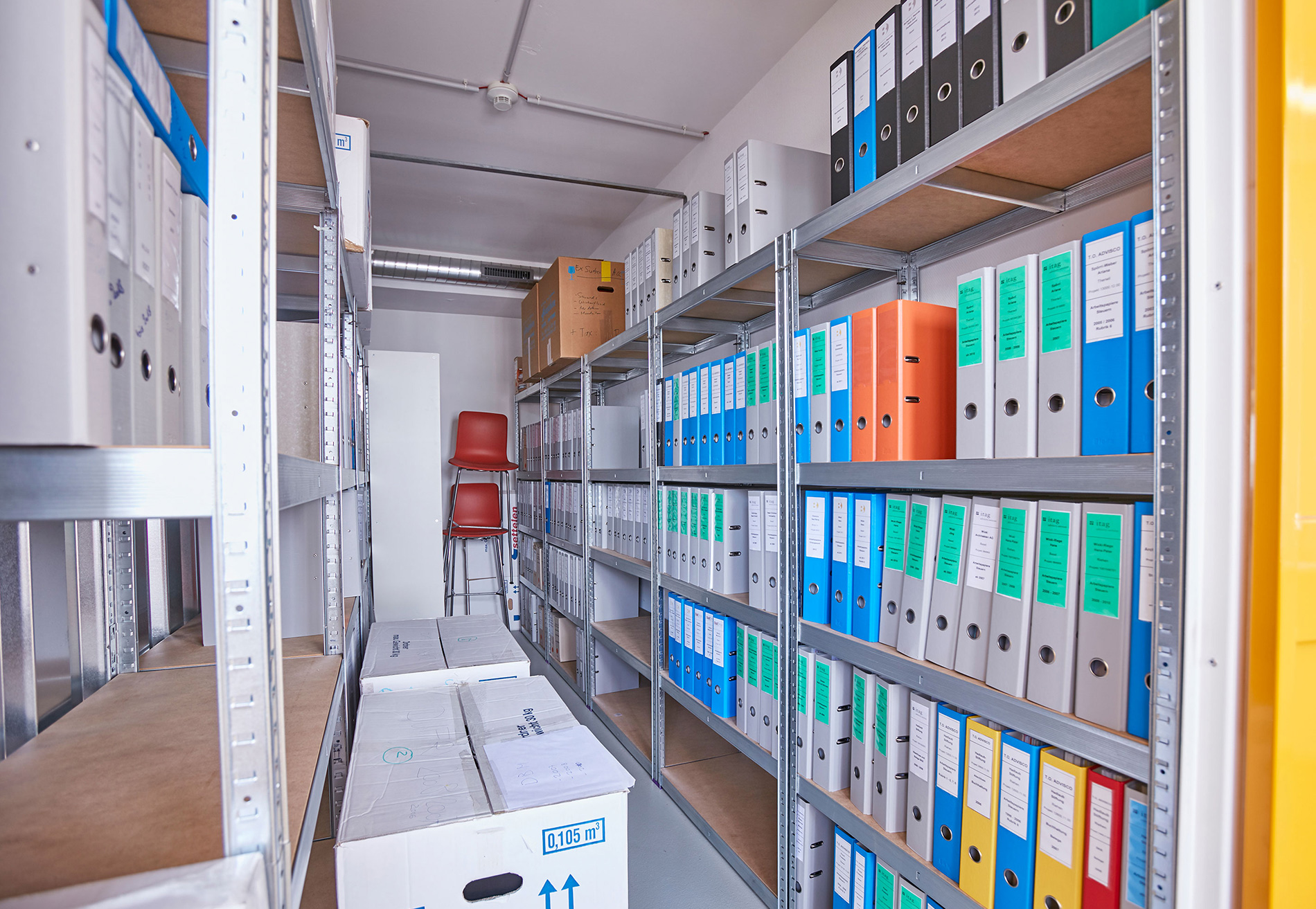In corporate and professional offices, large amounts of paper documents piling up are a common problem that can significantly reduce productivity, create clutter, and make it difficult to manage daily tasks effectively.
In Switzerland, lots of companies have to handle important documents such as invoices, contracts, tax documents, and customer records that have to be stored securely, often for long periods of time, in accordance with specific regulations.
In this context, an effective solution to free up valuable space and securely store business documents is self-storage, i.e. temporary storage units such as those offered by Casaforte.
In this post, we will take a detailed look at the concrete advantages of using a self-storage box for storing documents and how to properly implement this solution in your company.
Why consider self-storage for documents?
Every company produces a significant amount of paper documents on a daily basis that require physical space to be stored. Over the years, these documents quickly pile up, taking up space that could be used much more productively, e.g. for new workstations, meeting rooms, or other strategic business activities.
Temporary storage units offer an immediate, secure, and flexible solution to this problem, enabling companies to store documents in a dedicated external space with easy and controlled access.
Advantages of using self-storage for documents
Guaranteed security
A fundamental aspect of document storage is security. Documents such as invoices, contracts, and sensitive files must be protected against unauthorised access, theft, or accidental damage. The self-storage boxes are equipped with advanced video surveillance systems, alarms, and access control, thus ensuring maximum security and peace of mind for companies.
Customisable space
Another great advantage is the ability to choose exactly the space you need. You can opt for smaller or larger spaces depending on the amount of documents to be stored, avoiding wasting money and only paying for the space you actually use.
Easy access to documents
Storing them at a self-storage facility allows you to easily access documents. It is quick and easy to retrieve specific documents thanks to flexible opening hours and facilities with dedicated loading and unloading areas.
Optimal storage conditions
Paper documents need a dry, clean, and well-ventilated environment to prevent deterioration over time. Casaforte’s self-storage boxes offer ideal conditions for the long-term preservation of documents, guaranteeing the integrity and readability of archived materials.
Regulatory compliance
Many companies are required by law to retain specific documents for extended periods of time. Using a self-storage box enables you to easily comply with these regulatory requirements without clogging up your internal company facilities.
The best way to organise documents in a self-storage facility
- Use suitable boxes and containers: choose sturdy and uniform containers, clearly labelled with the contents and the date archived.
- Implement a cataloguing system: use a simple but effective system to catalogue the documents, making it easier to retrieve them in the future.
- Take advantage of vertical shelving and structures: by organising documents vertically, you can further optimise space and keep everything clearly organised.
- Leave clear access spaces: create paths and corridors wide enough to allow easy access to the documents.
For more tips on how to organise your box space, you can read this post: “How to organise your self-storage box to optimise space (and save money)“
A real-life example
A well-known accounting firm in Lugano recently opted to use a self-storage box to store tax and accounting documents accumulated over more than 10 years of business. Before using a self-storage facility, the firm had dedicated entire rooms to storing documents, greatly limiting the space available for their core business. After deciding to use a temporary storage unit, the firm managed to recover about 30% of its internal space, creating new workstations and increasing the overall productivity of its staff. In addition, the cataloguing system adopted made it significantly faster and easier to retrieve archived documents, improving the firm’s operational efficiency.
What kinds of business is storing documents in a self-storage box particularly suitable for?
Here are some types of business that can benefit significantly from storing documents in a self-storage box:
Professional firms
- Accountants: archiving tax returns, financial statements, and mandatory accounting documents.
- Lawyers and notaries: retaining notarial deeds, contracts, court documents, and sensitive documentation.
- Architects and engineers: technical documentation, plans, and site files.
Commercial companies
- Shops and stores: invoices, receipts, sales and purchase documents, inventories, and historical business records.
- E-commerce: shipping receipts, customer orders, goods purchase invoices, and customs documentation.
Medical and healthcare sector
- Medical and dental practices: medical records, health and administrative documentation required by law.
- Pharmacies: drug purchase documents, certificates of conformity, and mandatory records.
Real estate sector
- Real estate agencies: rental and sales contracts, property valuations, certifications, and land registry documentation.
- Condominium management: minutes of meetings, technical building documentation, bills, and condominium correspondence.
Financial and insurance services
- Banks and finance companies: financial contracts, mortgages, loans, and sensitive documents required by law.
- Insurance agencies: insurance policies, claims documentation, contracts with clients and suppliers.
Small and medium-sized enterprises (SMEs)
- Mandatory accounting and administrative documentation, historical company archives.
- Associations and non-profit organisations
- Association management documents, minutes of meetings, and accounting records required by law.
Educational institutions
- Private schools and educational institutes: school archives, records, student documentation, and diplomas.
Tourism sector
- Hotels and restaurants: receipts, invoices, contracts with suppliers, mandatory tax and administrative documentation.
Freelancers and self-employed professionals
- Contracts, invoices issued and received, documentation relating to projects and clients.
- These businesses can benefit significantly from using a self-storage service for documents, thanks to the security, ease of management, space savings, and regulatory compliance.
A smart solution for document storageSelf-stor
age for documents is a smart and flexible solution to free up valuable space within companies and professional offices. Ensuring security, optimal storage conditions, ease of access, and regulatory compliance, it is a strategic and advantageous choice to effectively manage company records.
